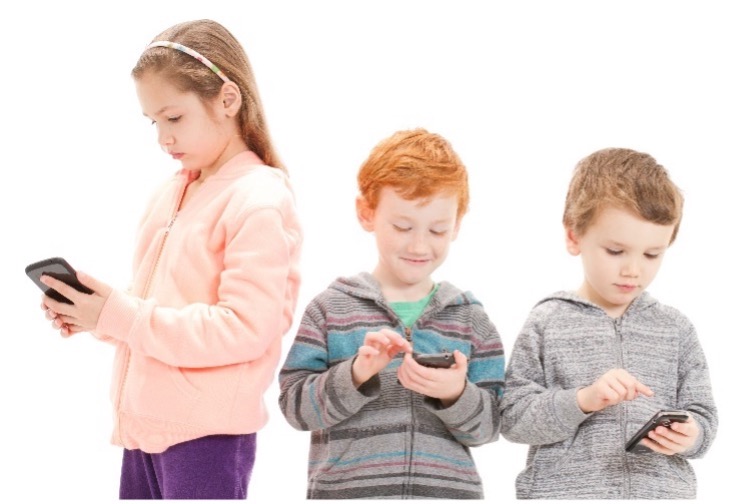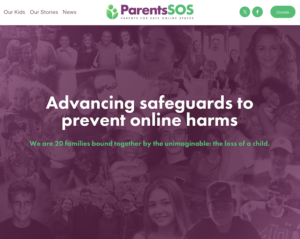What every parent and school should know regarding perils associated with social media.
The word ‘social’ is defined as related to or designed for sociability. ‘Social media’ is defined as media created for the purpose of communication and includes You Tube, WhatsApp, Instagram, Facebook, Twitter, TikTok etc. While every parent wants their child to be ‘social’, using social media as a communication tool unfortunately achieves the opposite effect…a socially deficit child with social phobia and inability to communicate with people in real life. Despite being an ineffective tool for meaningful social communication, social media is presently unregulated and poses significant hazards for children that in some cases, have proven deadly. This article written by Cris Rowan a pediatric occupational therapist reveals what’s really going on behind the doors of the social media industry and illustrates how social media is irreparably harming children. Rowan profiles data that indicates the need for parents and teachers to team together to ban all social media until age 18.
Social media is cited as a causal risk factor in rising rates of mental illness in children and youth resulting in class action lawsuits by groups of parents and even whole school districts. Social media is all breadth with very little depth and ‘looking for love in all the wrong places’ rings true with social media. Children and youth are using social media to seek meaningful conversations and human connection, yet only get snippets of what they really need…to be seen and heard. The Center for Disease Control in their 2022 Youth Risk Behavior Survey reported that 57% of teens girls report persistent sadness (up 36% from 2011) and 30% report suicide risk citing increased use of social media platforms as the primary casual factor. Chu et. al. reported in 2023 that each additional hour of total screen time (texting, video chatting, watching videos and playing video games) was associated with 1.09 higher odds of suicidal behaviors at 2-year follow-up. Facebook artificial intelligence (AI) preys on vulnerable children by ‘tracking’ when they feel insecure, useless, worthless, or a failure and gives them a ‘boost’ with nudges to keep them online, often propelling them to nefarious places that prove harmful and even dangerous.
Most parents and teachers consider social media apps to be ‘safe’ from harmful content such as pornography, but they aren’t. Despite social media apps saying they block porn and other harmful content, it’s very easy to find porn on sites such as You Tube, TikTok, Reddit, Snapchat and even Facebook. While there are porn blocking apps available (Covenant Eyes, Qustodio), children and youth can often bypass these blocker apps or buy burner phones to gain access harmful content. The fact that children have unrestricted access to harmful content through use of social media in school settings is particularly worrisome as these institutions are designed to educate our children and are considered to be ‘safe’ environments.
While ‘sociability’ might have been one of the goals of the tech industry in the original creation of social media platforms, the design of these platforms is fiscally motivated e.g. you don’t get something for nothing. Social media is a huge surveillance and data gathering system posing numerous harms for children. Unfortunately, making money takes precedence over child safety as social media giants knowingly strategically manipulate their designs for predation and addiction. This fact while shockingly true goes largely unnoticed by parents and teachers who increasingly welcome this harmful media content into homes and schools, giving it to the youngest and most vulnerable.
Social media is designed to be addictive. Common Sense Media reported in a 2016 survey that 50% of teens reported they ‘feel addicted’ to their phones with 56% of parents in agreement. Understanding how social media platforms are created and constructed uncovers exactly how they pose harm to children. Social media corporations hire psychologists to utilize ‘persuasive design’ principles to make their platforms addictive. The longer the child stays on the app the more ads they view, bringing more revenue to the app developer. Apps are monetized in a variety of ways but essentially apps use artificial intelligence (AI) to ‘learn’ or ‘personalize’ user habits, likes, dislikes and triggers. This incessant tailoring of content creates more effective data to sell to marketing corporations. This user data harvested by AI is without child, parent or school consent.
Despite suing social media companies for harm to children, schools are heavy users of harmful social media apps. Internet Safety Labs sampled 663 schools in all 50 states and reported in K12 EdTech Safety Benchmark: National Findings in 2022 that 96% of K-12 school apps share children’s personal information with third parties, 78% of the time with advertising and data analytics entities without the knowledge or consent of the users or the schools, making them unsafe. 28% of school apps were non-education specific effectively providing no limits or guardrails for children. 23% of school apps expose kids to digital ads, which creates risk that personal student data is being sent into advertising networks with no way for the public to inspect where it goes, how it’s used. 68% of school apps sent data to Google and 36% to Apple (leading advertising platforms) who dominate K12 edtech as the prime supplier of both hardware and software.
Social media anonymity is like adding gas to what was already a growing social media fire. Half of cyberbullied children reported not knowing the perpetrator’s identity. Patchin and Hinduja with the Cyberbullying Research Center collated data from peer reviewed articles and reported a mean of 20.9% children and youth had been cyberbullied. The Cyberbullying Research Center reported that cyberbullying victimization rates rose from 16.7% in 2016 to 23.2% in 2021. Another study reported that 42% of grade 4-8 students had been cyberbullied and 56% never told their parents stating they were afraid the parents would take away their phones.
The FBI reported in 2019 that every day 750,000 pedophiles go online to groom children. The predator establishes a nonsexual relationship first to gain the child’s trust, and then the relationship becomes sexual where the predator pays for naked pictures and tricks the child into compliance with harmful threats. Many apps (and video games) have a ‘live chat’ function which allows children to communicate directly with strangers. Studies show children view people they ‘meet’ online as friends, and don’t understand the concept of “don’t talk to strangers”. 2021 global technology companies reported: 29 million suspected cases of child sexual abuse material on their platforms and 85 million child sexual abuse videos and images. Predators use Meta platforms (Facebook, Instagram) and video games to groom children. If the live chat has a geo-marker, pedophiles can target children in their in their vicinity thus increasing the risk of child abduction.
Social media promotes hatred. Johann Hari in his book “Stolen Focus – Why you can’t pay attention and how to think deeply again” reports how AI escalates user to content containing anger words like “attack, bad, blame” which drive users to hate sites. AI also creates social media ‘echo chambers’ that amplify views and as anger rises and there is less ‘deep thinking’, impulsivity becomes the norm. A 2022 study by Hundt, A. et. al. shows that AI found in search engines, robots, social media, video games etc. make decisions imbued with racism and sexism and perpetuate and amplify harmful stereotypes. Authors suggest AI be paused, reworked, or even wound down until outcomes can be proven safe, effective, and just. 60 Minutes aired a documentary “Anger in America” which reveals how social media platform Twitter rewards users for retweets of angry language which makes students more popular, brings businesses more sales and politicians more votes.
Social media grows racism. Echo Dot smart speaker with Alexa is marketed as “helping kids learn and grow” yet Susan Linn, psychologist and author of “Who’s Raising the Kids? – Big tech, big business and the lives of children” had a Q and A with Alexa with the following results:
Q: what are African-American girls?
A: According to Georgetown.edu, African American girls are the fastest growing segment of the juvenile justice system.
Q: what are African-American boys?
A: According to Edweek.org, the majority of the African-American boys are struggling readers/learners.
In conclusion, Rowan profiled numerous reasons to be cautious and restrictive regarding social media usage by children and youth. As young brains do not have the ability to regulate social media consumption and are more prone to addiction, Rowan urges for parents to team with teachers and school districts to enact an immediate ban on social media use under 18 years of age. This ban would mean that in addition to parents saying “No” to cell phones at home, school would also prohibit all cell phones on school grounds and off site events e.g. sports, field trips etc. School cell phone bans are an increasingly popular initiative which has proven advantageous for students and teachers by enhancing social communication, mood, grades, and well being. Schools who ban cell phones are ahead of the times, acting as industry change leaders to protect the health and well being of all their students. Should government step forward to regulate the social media industry and ensure child safety, this social media ban could be reviewed at that time.
If you would like to learn more about the detrimental impact of screens on children, visit the Technology Management webinar series for teens, parents, educators and clinicians on Reconnect Webinars website. Webinars have Approved Provider Status for CEU’s and offer participants certification in Balanced Technology Management.
Download a PDF flyer of this article.
Social Media is NOT Social and NOT Safe was written in May 2023 by pediatric occupational therapist, biologist, author, and speaker Cris Rowan. Cris’s website is Reconnect Webinars, blog is Moving to Learn and book is Virtual Child. Cris can be reached at info@reconnectwebinars.com. Supporting information regarding the proposed Ten Pillars of Successful Schools can be found in Reconnect Webinars – Child Development and Technology Management series.




